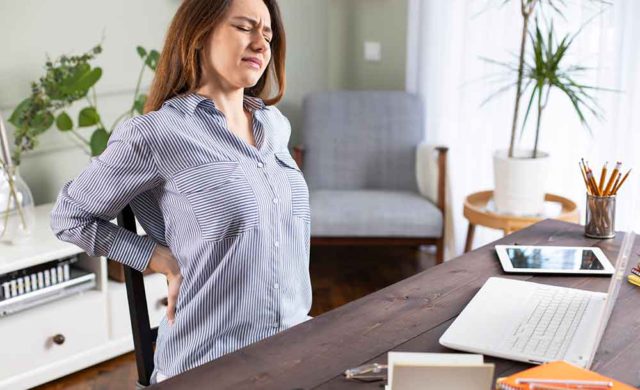
One of the team may suggest attending an NHS group exercise programme if they think it might help reduce your pain.
These programmes involve classes led by a qualified instructor, where you’re taught a mix of exercises to strengthen your muscles and improve your posture, as well as aerobic and stretching exercises.
Manual therapy is the name for a group of treatments where a therapist uses their hands to move, massage and apply careful force to the muscles, bones and joints in and around your spine.
It’s usually carried out by chiropractors, osteopaths or physiotherapists, although chiropractic and osteopathy aren’t widely available on the NHS.
Manual therapy can help reduce back pain, but it should only be used alongside other measures such as exercise.
There’s also some evidence that a therapy called the Alexander technique may help with long-term back pain, although the National Institute for Health and Care Excellence (NICE) doesn’t currently recommend this treatment specifically.
Your GP or one of the Camden MSK team may suggest psychological therapy, in addition to other treatments such as exercise.
Therapies such as cognitive behavioural therapy (CBT) can help you manage back pain better by shifting how you think about your condition.
While the pain in your back is very real, how you think and feel about your condition can make it worse.
If you’ve been in pain for a long time, a specialist treatment programme that involves a combination of group therapy, exercises, relaxation, and education about pain and the psychology of pain may be offered.
Surgery for back pain is usually only recommended if there’s a specific medical reason for your pain, such as sciatica or a slipped (prolapsed) disc, and other treatments haven’t helped.
But a procedure called radiofrequency denervation may sometimes be used if:
Your doctor will talk to you about what this procedure involves before going ahead.
A number of other treatments have sometimes been used for non-specific back pain (back pain with no identified cause), but aren’t recommended by the National Institute for Health and Care Excellence (NICE) because of a lack of evidence.
These include:
You can self-refer into community physiotherapy services. Simply call 0207 871 0545 to make an appointment. Your initial contact with one of our chartered physiotherapists may be over the phone, where you will either be given advice on appropriate treatment, or a face-to-face consultation will be arranged.
Should you wish to speak to your GP first, simply make an appointment with your local practice. If your GP refers you, one of our patient care advisers will contact you within 48 hours to arrange an appointment.